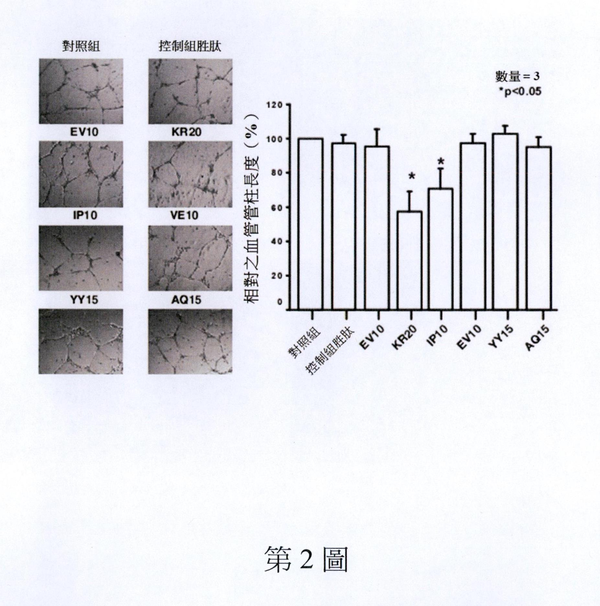Introduction
Angiogenesis refers to the growth of new microvessels from existing blood vessels. When the endothelial cells in blood vessels are not stimulated, they are in a static and unactivated state; when stimulated by pro-angiogenic factors, they will activate and initiate downstream pro-angiogenesis processes. The reaction causes the endothelial cells to synthesize and release degradative enzymes, which in turn causes the endothelial cells to move and grow, and eventually differentiate to produce new blood vessels.
Angiogenesis includes (1) ocular angiogenesis diseases (2) leading to rheumatoid arthritis and degenerative arthritis (3) inflammatory reactions and inflammation-related diseases (4) tumor formation and metastasis. Tumor cells will secrete various pro-angiogenic Neoplastic factors cause angiogenesis and other related diseases.
Features / strengths
In view of the occurrence and progression of angiogenesis and various diseases, the present invention discovered for the first time that the peptide of human desmoglein 2 (Dsg2) can effectively reduce angiogenesis. Dsg2 plays an important role in the information transmission pathway of angiogenesis; multiple studies have pointed out that using Dsg2-small interfering ribonucleic acid (Dsg2-siRNA) to inhibit the expression of Dsg2 can reduce actin stress fiber formation and activity. Vascular column formation in vitro and angiogenesis in vivo.
In the future, the present invention can be developed into peptide drugs, which will help to effectively inhibit angiogenesis or treat angiogenesis-related diseases and drugs and treatment methods, so as to improve or alleviate related symptoms.
Specification in detail
Under development
Seek of partners for business cooperation


